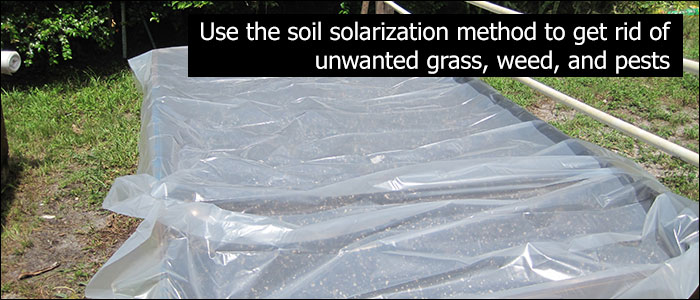Grass can really be stubborn. It competes with your veggies for nutrients and will almost always win. Not getting rid of them can affect your precious vegetables. Here are a few ways to ensure that this menace doesn’t affect your veggies.
1. Hand pulling
This may sound old school but can solve your grass problem permanently. Uprooting grass eliminates chances of future germination due to the exposure of the roots.
Considering the risks associated with chemical grass elimination, hand pulling is arguably the safest method of weed removal.
You will however need to set aside time and have the right tools like gardening gloves to literally pull this.
2. Use vinegar
Yes while this solution is only efficient on small gardens, it does kill weeds effectively. Simply take concentrated vinegar, dilute it with some water (1 part vinegar 2 parts water) and carefully apply them to the weeds.
It will take up to 40 hours for all the grass to dry off. Wetting the grass and treating it on a sunny day will accelerate the process.
Keep the vinegar off your veggies as it can also dry them off.
3. Salt application
If you can’t get vinegar, salt can be a viable substitute. Just like what the Romans did in Carthage, increasing the salinity of soil is an ultimate weed killer.
Selectively apply salt crystals to the base of roots of weeds in your garden careful not to affect your precious vegetables.
Salt tampers with the PH and osmolality of plants ultimately drawing water from the roots and causing them to wither.
This is a budget-friendly solution if you can’t afford the expensive weed killers or if you champion for organic food.
4. Solarization

The sun’s rays are important for the germination of plants. However, this radiation can be harnessed to organically kill weeds without the risk of chemical herbicides.
Unlike other methods, this is only possible during summer time when there are plenty of daylight hours. Take a plastic sheet and cover the weeds in your garden.
The rising soil temperature, loss of moisture should be able to dry up your weeds. However, this process is albeit demanding since you will have to wait for between 3 to 4 months for the complete annihilation of your weeds.
5. Boiled water
As pedestrian as it sounds, hot water can actually kill weeds. While it’s a common science concedes plants cell walls as strong, most weeds cannot survive the heat and sudden temperature change.
6. Organic weed killers
Forget the conventional highly potent weed killers, several weed killers have come to the market. An example is the avenger weed killer.
This killer that is reputed to be made up of lemon and orange and other natural concentrates boast of safely eliminating weeds without compromising your veggies. Simply mix three parts of water to one part of the weed killer and selectively apply to the weeds. This should do it.
Alternatively, you can try and do it yourself by mixing natural lemon and orange juice and applying them to your plants.
7. Mulching
While its core purpose is moisture preservation for your garden, mulch can serve as an effective weed killer.
Mulching, when applied generously to weeds, suffocates the sunlight which is necessary for weed germination and growth. This inability to make food ultimately results in the death of plants.
These are some of the workable solutions to your weed problem on your farm. Depending on the size of your garden you can pick a method or use more than one.
